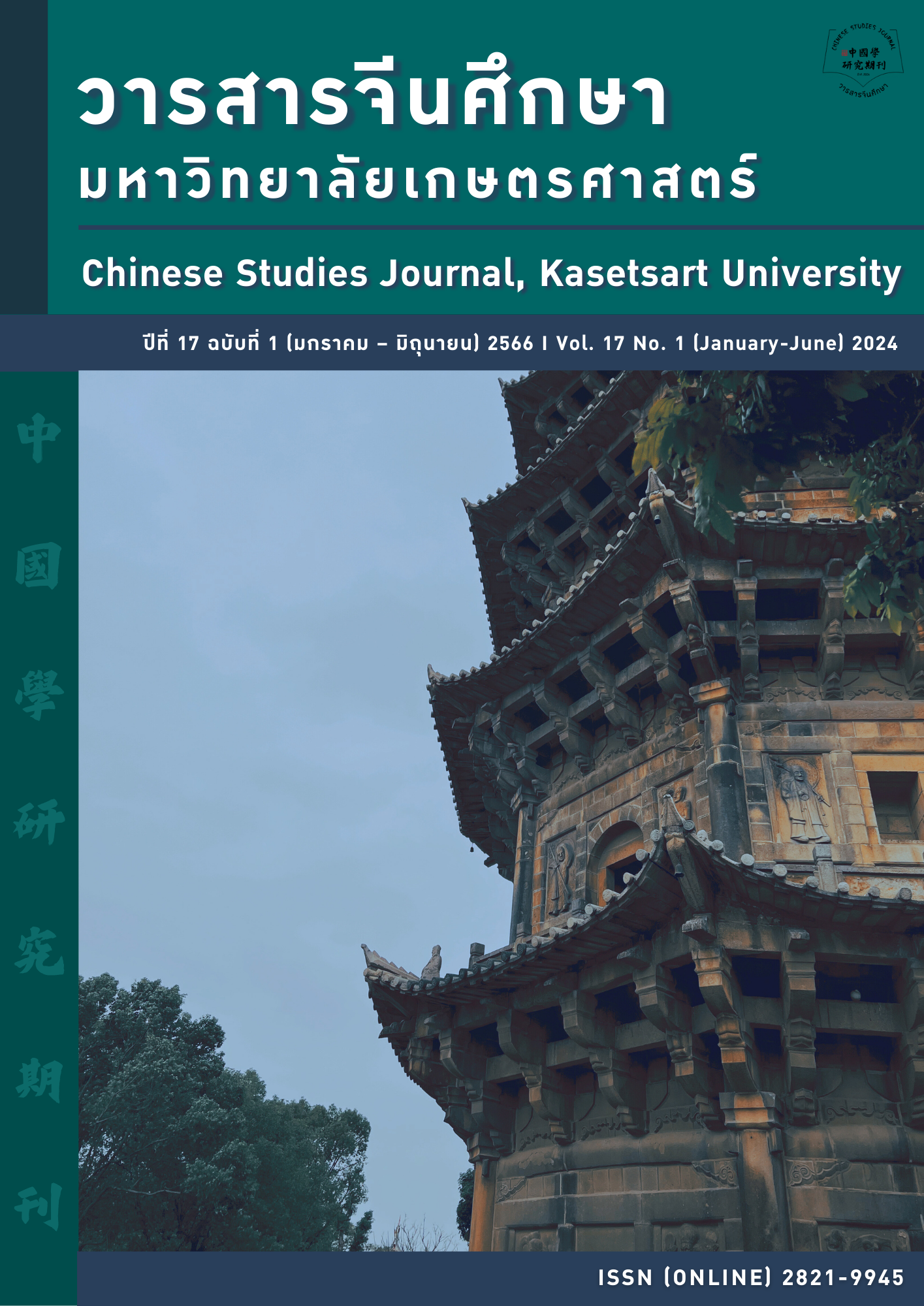Singapore’s Vocational Education System and the Implications for China ระบบการศึกษาอาชีวศึกษาของสิงคโปร์ที่มีอิทธิพลต่อประเทศจีน
Main Article Content
Abstract
Singapore has gained widespread recognition for its achievements in vocational education. It has a world-leading vocational education system with distinctive features in the examination and streaming system, continuing education, on-the-job training, teacher team building, and personnel management. The article comprehends Singapore’s vocational education system through the synthesis of existing research. Through actual fieldwork and relevant information, the successful experience of Singapore in vocational education is drawn from it. Then, it compares vocational education in China and Singapore and analyzes the limitations of vocational education in China at present. Finally, the successful experience of vocational education in Singapore is drawn upon to provide suggestions for vocational education in China.
Article Details

This work is licensed under a Creative Commons Attribution-NonCommercial-NoDerivatives 4.0 International License.
ผลงานทางวิชาการที่ลงตีพิมพ์ในวารสารจีนศึกษา มหาวิทยาลัยเกษตรศาสตร์ เป็นลิขสิทธิ์ของผู้เขียนหรือผู้แปลผลงานนั้น หากนำลงในวารสารจีนศึกษาเป็นครั้งแรก เจ้าของผลงานสามารถนำไปตีพิมพ์ซ้ำในวารสารหรือหนังสืออื่นได้โดยมิต้องแจ้งให้ทราบล่วงหน้า แต่หากผลงานที่ได้รับพิจารณานำลงในวารสารจีนศึกษา เป็นผลงานที่เคยตีพิมพ์ที่อื่นมาก่อนเจ้าของผลงานต้องจัดการเรื่องปัญหาลิขสิทธิ์กับแหล่งพิมพ์แรกเอง หากเกิดปัญหาทางกฎหมาย ถือว่าไม่อยู่ในความรับผิดชอบของวารสารจีนศึกษา มหาวิทยาลัยเกษตรศาสตร์ ทั้งนี้ ความคิดเห็นต่างๆ ในบทความเป็นความคิดเห็นส่วนตัวของผู้เขียน ไม่เกี่ยวกับกองบรรณาธิการวารสารจีนศึกษา มหาวิทยาลัยเกษตรศาสตร์
References
Tarat, S., & Sindecharak, T. (2020). The vocational education system in Thailand and Singapore: A sociological perspective. Thammasat Review, 23(2), 192-211.
Tucker, M. S. (2012). The Phoenix: Vocational Education and Training in Singapore. International Comparative Study of Leading Vocational Education Systems. National Center on Education and the Economy, 1.
Law, S. S. (1996). Dynamics and challenges of a vocational training system: the Singapore experience. Singapore, Institute of Technical Education, 1.
Gopinathan, S. (2011). The education system in Singapore: The key to its success. Singapore, National Institute of Education, 43.
Wei, X. L. (2021). An analysis of vocational education in Singapore under the perspective of “student-centered”. Education and Career, (June), 88-92.
Guo, L. Y. & Zeng, Q. Y. (2017). Cultural reflections on the development of vocational education in Singapore. Adult Education, (2), 84-87.
Qing, Z. Q. (2018). A review of vocational education development in Singapore: exploration, reform and experience. Research on Higher Engineering Education, (2), 195-200.
Zhang, G. M. & Yuan, Q. X. (2018). Singapore’s Skill to Create Mileage Program and Some Implications for
the Development of Vocational Education in China. Vocational and Technical Education, 39(13), 74-79.
Duan, L. H. (2017). Path of innovative development of higher vocational education in Singapore and its inspiration-Taking Nanyang Polytechnic as an example. Vocational and Technical Education, (33), 67-71.
Liu, Z. S., & Wang, W. J. (2015). Into the Lion City--A Study Tour of Vocational Education in Singapore. Vocational and Technical Education, (21), 70-76.
Project Team of the Annual Report on the Quality of Vocational Education in China 2020, Editorial Board
of China Vocational and Technical Education. (2021). Achievements, Challenges and Countermeasures in the Development of Vocational Education in China: An Overview of the “2020 Annual Report on the Quality of Vocational Education in China”. China Vocational and Technical Education, (15), 5-12.
Liu, S. Y., & Qi, Z. Y. (2018). Exploring the reform of China’s vocational education management system over the past 40 years of reform and opening up. Vocational and Technical Education, 39(13), 38-43.
Sun, C., Z. C., & N. W. (2021). “Achievements, Problems and Countermeasures Suggestions for the Development of Vocational Education in China - A Ten-Year Review and Prospect of the Outline of Educational Planning”. Vocational and Technical Education, 42(7), 6-12.
Ministry of Education of the People’s Republic of China. Number of students in higher education. [2021-12-20]. http://www.moe.gov.cn/jyb_sjzl/moe_560/2020/gedi/202108/t20210831_556496.html
Ministry of Education of the People’s Republic of China. Number of students in secondary vocational schools (institutions). [2021-12-20]. http://www.moe.gov.cn/jyb_sjzl/moe_560/2020/gedi/202109/t20210902_557961.html
Ministry of Education of the People’s Republic of China. Ministry of Education: by 2022, “dual teacher” teachers in vocational colleges and universities will account for more than half of the teachers in specialized courses. [2019-10-18] [2021-12-20]. http://www.moe.gov.cn/fbh/live/2019/51475/mtbd/201910/t20191022_404718.html.
Li, X.J. (2013). An analysis of the evolution of vocational education development concepts in Singapore. Continuing Education Research, (12), 155-157.
Ministry of Education of the People’s Republic of China. New Vocational Education Law comes into force on May 1st. Xinhua News. [2022-4-20] [2022-4-21].
http://www.moe.gov.cn/jyb_xwfb/s5147/202204/t20220421_620058.html.
Ministry of Education of the People’s Republic of China. Law of the People’s Republic of China on Vocational Education. [2022-4-20] [2022-4-21].
http://www.moe.gov.cn/jyb_sjzl/sjzl_zcfg/zcfg_jyfl/202204/t20220421_620064.html.


